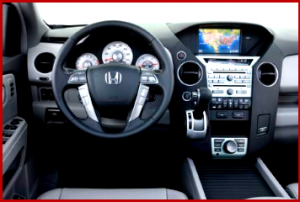
Initially neither Honda nor Takata said that a safety defect exists in front airbag inflators. While there is no way to quantify how many lives were saved by the airbags, they all eventually fail.
NHTSA announced earlier in May that it is expanding the recall of deadly Takata airbag inflators to include an additional 35-40 million inflators. This is in on top of the 28.8 million Takata inflators already under recall. NHTSA claims that more than a quarter of those are repaired. Failures of Takata airbag inflators have been tied to ten deaths and more than 100 injuries in the United States. Honda recently said that there have been two more fatalities in Malaysia due to ruptures of Takata airbag inflators.
This is the largest, most complex and most expensive safety recall in U.S. history. Under the so-called Coordinated Remedy Program, NHTSA and automakers have committed to seek a 100% recall completion rate – laughable to anyone who knows that even a 70% rate is historically impressive with larger recalls.
Vehicles now included in the expanded Takata airbag recall are not yet searchable using NHTSA’s Recalls Lookup Tool. This new information will be made available as soon as the automakers load that data into the system.
What you need to know:
- The Takata inflators do not pose an unreasonable risk to safety when they are installed in a new vehicle or for several years afterward.
- Over time, though, the combined effect of moisture and heat cause the inflators to degrade—at varying rates in different conditions—to a point where they are no longer safe and should be replaced.
- Not every Takata airbag is at risk of failure today. NHTSA claims its actions are designed to ensure that airbag inflators are recalled and replaced before they become a risk to vehicle occupants.
In addition to distributing recall information, NHTSA says it is also making sure that vehicle owners get safe replacement inflators installed in their vehicles. Because replacement inflators need to be specifically engineered for each affected vehicle model, it will take time before all recalled inflators will be able to be replaced.
NHTSA is working with the auto industry to accelerate the production of replacement supplies and continuing to require vehicle manufacturers to prioritize the replacement of the riskiest vehicles.
What you can do now:
- Regularly check SaferCar.gov for information about any open recall on your vehicle and what you can do to have it fixed free of charge.
- Sign up for NHTSA’s Recall Alerts to receive an e-mail if your vehicle is recalled.
- If you are notified that your vehicle is under recall and a remedy is available, contact your dealer to schedule a repair and get your vehicle fixed at no cost.
Read Auto Informed on Takata:
- Honda Recalls Expand Nationwide for Bad Takata Inflators
- Takata Airbag Recall Expanded Again – Honda CR-V Models
- NHTSA Whacks Takata with $70-200 Million Consent Order
- Ferrari Recalls All 2015 Cars. Bad Takata Airbag Stops Sales
- 445,000 Takata Airbag Inflators Recalled – Mazda6 and RX8
- Takata Takedown – NHTSA to Direct Airbag Inflator Recall
- Honda, Toyota, Nissan Expand Takata Airbag Recalls Yet Again
- Honda Expands Takata Airbag Recall Again to 5.5 Million
- Lawsuit against Honda,Takata Alleges Airbag Caused Death
- Takata Defends its Airbag Inflator Defect Explanation
- NHTSA Orders Takata to Preserve Recalled Inflators
- Automakers Pick Orbital ATK to Review Takata Airbag Inflators
- Honda Pays Largest NHTSA Fine in History for Takata and other Safety Cover Ups
- Chrysler Expands Takata Recall Nationally
- Ford, BMW Expand Takata Inflator Recalls Nationally
- Takata to NHTSA – Drop Dead
- NHTSA Opens Cover-up Probe on Honda Takata Airbag Deaths
- Nissan Expands Takata Airbag Shrapnel Recall
- BMW Caught in Takata Airbag Recall as 574,000 Bimmers Affected in an Expanded Campaign
- GM Stops Sale of 2013-14 Cruze Models for Defective Takata Air Bag Inflators
- More Air Bag Recalls at 7 Makers from Takata Inflators
- Japanese Price Fixing Scandal Expands with Two More Indictments and Prison Sentences for Three Takata Executives
- BMW Joins the Global Takata Airbag Shrapnel Recall
- Takata Airbag Recall on 3.3 Million BMW, Honda, Mazda, Nissan and Toyota Cars

